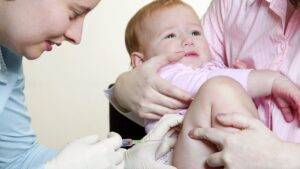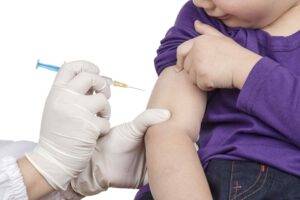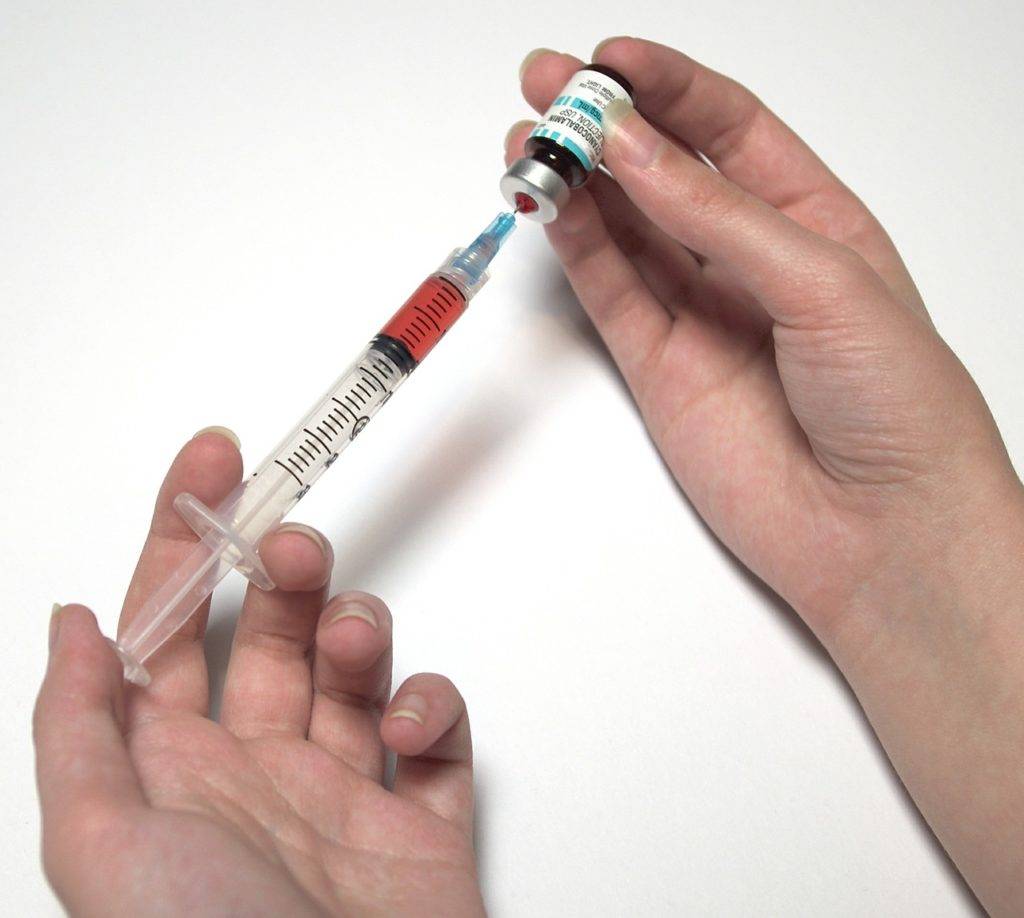Vaccination has been among the major achievements of public health over the years. The program has remarkably reduced the incidence of infections, thus, saving lives. Among those, the measles, mumps, and rubella (MMR) vaccine protects from these infections and has made major contributions to controlling these severe illnesses.
Despite some controversies and misinformation surrounding vaccines, the scientific consensus underscores their safety and efficacy.
This blog post will dig deep into the benefits of the MMR vaccine in the long haul. It focuses on its significant effects on the health of the individual, community, and the whole society’s welfare. Keep reading, let’s explore!
Individual Health Benefits
1. Protection Against Measles. Mumps, and Rubella
- Measles: This has been the leading cause of death among young children due to its complications. Vaccination prevents these immediate health threats and contributes to long-term health by averting complications.
- Mumps: This is characterized by swelling of the salivary glands, headaches, and fever, In severe cases, it may lead to meningitis, encephalitis, and hearing loss. The MMR vaccine has significantly decreased the prevalence of these illnesses.
- Rubella: While typically milder in children, rubella poses a significant risk to pregnant women, potentially leading to congenital rubella syndrome (CRS) in the fetus. Through vaccination, it protects future generations.
2. Protection Against Complications
Being one of the major benefits, the MMR vaccine is successful in preventing long-term complications associated with measles, mumps, and rubella. Complications lead to severe, lasting health issues that impact individuals well into the future. Vaccination mitigates the risks for better health outcomes for individuals and communities.
- Chronic Disabilities
Measles-related complications are subacute sclerosing panencephalitis (SSPE), permanent hearing loss, and encephalitis. SSPE is a rare but fatal brain disorder that develops years after the initial infection. Ear infections lead to permanent hearing loss. Encephalitis is an inflammation of the brain.
Mumps-related complications are orchitis, oophoritis, meningitis, and encephalitis. Orchitis is characterized by an inflammation of the testicles in males, while oophoritis is an inflammation of the ovaries in females. Both severely affect fertility.
Rubella-related complications include congenital rubella syndrome (CRS). This significantly impacts pregnant women due to its effects on the fetus. This condition may lead to birth defects, including heart abnormalities, deafness, and developmental delays. The MMR vaccine’s ability to prevent rubella ensures that unborn children are protected.
- Immune suppression: Measles can cause immune suppression, increasing vulnerability to other infections and secondary infections.
Immune Memory Suppression: The measles virus resets the immune system’s memory, effectively causing “immune amnesia.” This condition causes the affected individual to be susceptible to other infections they were previously immune to. The immune system’s compromised state can last for years, increasing the risk of secondary infections.
Compromised Immune Response: During and after a measles infection, the body’s immune response is weakened, making it difficult to fight other infections. This leads to prolonged illness and increased severity of other diseases. The MMR vaccine prevents this by stopping measles infection before it can compromise the immune system.
3. Promoting Long-Term Immune Health
- Reduced Disease Burden: By protecting children, the vaccine reduces the overall burden of disease during their crucial developmental years. This ensures that children grow and develop without interruptions or complications from illnesses.
- Stable Immune System: Avoiding immune suppression helps maintain a stable and effective immune system, which is crucial for the child’s ability to fight off various infections throughout their life.
- Sustained Immunity: The MMR vaccine provides long-lasting immunity, reducing the likelihood of contracting the diseases and their complications later in life, marking the cornerstone of long-term health and well-being.
- Booster Protection: When booster doses are recommended, adherence to vaccination schedules ensures continued protection and reinforces the body’s immune defense against these diseases.
4. Herd Immunity
Vaccination protects the individual and contributes to herd immunity. When a significant portion of the population is vaccinated, the spread of the disease is contained, offering indirect protection to those who cannot be vaccinated due to medical reasons.
This collective immunity is crucial for protecting the most vulnerable in society, including infants, the elderly, and immunocompromised individuals. It also includes unborn babies and newborn babies.
Community Health Benefits
5. Reduction in Disease Outbreaks
The widespread use of the MMR vaccine has led to a significant reduction in disease outbreaks. For instance, before the vaccine was introduced, millions of measles cases were reported annually worldwide. Vaccination campaigns have drastically reduced these numbers, leading to fewer outbreaks and a decrease in healthcare burden.
6. Economic Savings
Preventing diseases through vaccination is far more cost-effective than treating illnesses. Measles, mumps, and rubella outbreaks strain healthcare systems, leading to high medical costs and economic losses from missed work and long-term disability care. The MMR vaccine mitigates these costs by preventing the diseases.
7. Public Health Resilience
By maintaining high vaccination coverage, communities are better equipped to handle potential disease resurgence. This resilience is particularly important in a globalized world where infectious diseases spread rapidly across borders. High MMR vaccination rates ensure that outbreaks are quickly contained, preventing widespread transmission.
Societal Benefits
8. Enhanced Quality of Life
Vaccination against measles, mumps, and rubella ensures quality of life by preventing the disabilities and chronic conditions associated with these diseases. Children grow up healthy and attend school without the interruption of illness, and adults maintain their productivity and contribute to society without the burden of disease.
9. Intergenerational Health Benefits
The MMR vaccine provides protection that extends beyond the individual’s lifetime. By preventing rubella infection in pregnant women, it protects unborn children from the consequences of congenital rubella syndrome. This benefit has profound implications for intergenerational health and development, ensuring healthier future generations.
10. Support for Global Health Initiatives
High vaccination rates in one region contribute to global health efforts aimed at eradicating these diseases. Successful regional vaccination programs serve as models for other areas, promoting worldwide health equity and supporting international public health goals.
The eradication of diseases like smallpox and the near-eradication of polio demonstrate the power of coordinated vaccination efforts.
Addressing Vaccine Hesitancy
Despite the evidence supporting the benefits of the MMR vaccine, vaccine hesitancy remains a significant challenge. Misconceptions and misinformation, particularly linking the MMR vaccine to autism, have led some parents to delay or refuse vaccination.
Addressing these concerns through clear, evidence-based communication is essential to maintaining high vaccination rates and protecting public health.
Scientific Evidence
Extensive research has debunked the myth linking the MMR vaccine to autism. Multiple large-scale studies have found no credible evidence supporting this claim. Healthcare providers and public health officials play a crucial role in disseminating this information and reassuring parents about the vaccine’s safety.
Education and Outreach
Public health campaigns should focus on educating communities about the importance of the MMR vaccine and the dangers of vaccine-preventable diseases. Outreach programs, particularly in underserved and hesitant communities, can improve vaccine acceptance and coverage.
Trust in Healthcare Systems
Building trust in healthcare systems is vital for addressing vaccine hesitancy. Transparent communication, empathy towards parental concerns, and consistent public health messaging can help foster trust and encourage vaccination.
The Future of the MMR Vaccine
Continued efforts to promote the MMR vaccine are essential to sustaining its long-term benefits. Advances in vaccine technology and public health strategies can further enhance these efforts.
Improved Vaccine Formulations
Ongoing research aims to develop improved vaccine formulations that provide longer-lasting immunity and require fewer doses. These advancements could simplify vaccination schedules and increase adherence.
Global Vaccination Initiatives
Strengthening global vaccination initiatives, particularly in low- and middle-income countries, is crucial for achieving worldwide control of measles, mumps, and rubella. International collaboration and funding can support these efforts, ensuring equitable access to vaccines for all populations.
Monitoring and Surveillance
Effective disease monitoring and surveillance systems are necessary to detect and respond to outbreaks swiftly. Continued investment in these systems can help maintain high vaccination coverage and prevent disease resurgence.
Secure Your Child’s MMR Vaccine with Omega Pediatrics

The long-term benefits of the MMR vaccine are multi-faceted, involving individual health protection, community health resilience, and societal welfare. By preventing measles, mumps, and rubella, the vaccine safeguards current generations and ensures healthier future populations.
Addressing vaccine hesitancy through education, transparency, and trust-building is crucial for sustaining these benefits. As we look to the future, continued innovation and global cooperation will be key to enhancing the impact of the MMR vaccine and securing a healthier world for all.
Vaccination remains a cornerstone of public health, and the MMR vaccine is a testament to its life-saving potential. By embracing the long-term benefits of vaccination, we can build a resilient, healthy, and prosperous society for generations to come.
We at Omega Pediatrics strongly advocate for vaccinations for your kids’ health. With our expertise in children’s illnesses, we hope this blog has addressed our goal to increase awareness of the relevance and importance of the MMR vaccine.





